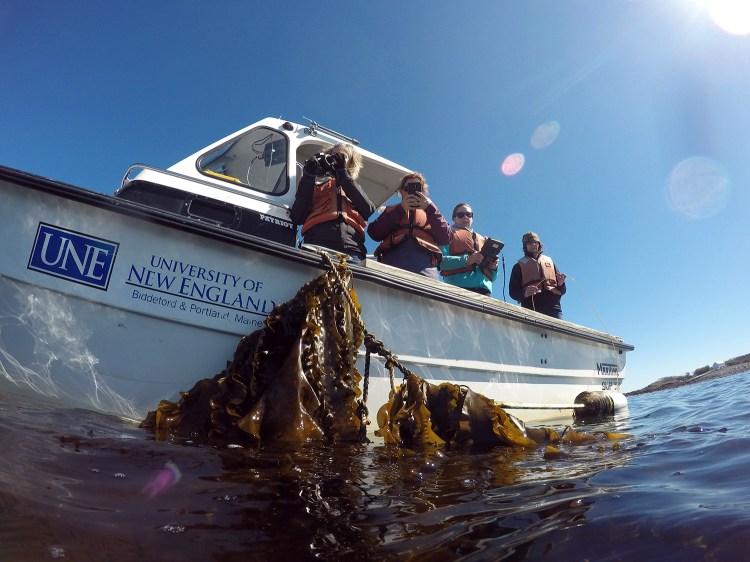The U.S. Department of Energy has awarded the University of New England a three-year, $1.3 million research grant to develop new technologies for seaweed production.
The grant is part of a new DOE program called Macroalgae Research Inspiring Novel Energy Resources, or MARINER, that aims to develop the tools to enable the U.S. to become a leading producer of macroalgae, or seaweed, to help improve U.S. energy security and economic competitiveness, the Biddeford-based university said in a news release.
Seaweed can be used as a raw material for transportation fuels, chemicals, foods and other commercial products without competing with food crops for land and water, it said.
“This award will support UNE’s network of eager, young scientists and entrepreneurs in all of our marine programs,” UNE President James Herbert said in the release. “With the help of this funding from the Department of Energy, our students will be part of a movement to pioneer the next generation of marine products.”
The university said its team will develop a fine-tuned 3D modeling tool to simulate hydrodynamic-induced mechanical stresses that seaweed farms face in the open ocean. The team will use its modeling expertise to determine the structural performance of new and existing farm designs in the Gulf of Maine.
Its model will be capable of simulating hectare-sized farms, which would speed up the engineering, testing and permitting process for new, large-scale seaweed farming systems, UNE said.
The team will expand UNE’s experimental seaweed farm from its current small size off Wood Island to 4 acres in Saco Bay, it said.
J. Craig Anderson can be contacted at 791-6390 or at:
Twitter: @jcraiganderson
Send questions/comments to the editors.




Comments are no longer available on this story